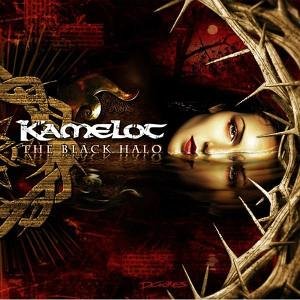Coldplay is what passes for music these days. Sadly, so does Evanescence, a band which is only slightly less incompetent than Coldplay. Considering the latter’s dizzying scale of incompetence, that’s not saying much. The market doesn’t adjudicate quality—both bands are as popular as they are unskilled.
No wonder then that Coldplay’s lead droner is so cocky. In a recent Vh.1 special, he boasted that, while his band may not be remembered in 100 years time for its lyrics, it would be immortalized for its chords.
Come again?
I counted the chords. In case you doubt my ability to count to two—sometimes three—my in-house musical consultant confirmed my math. (Listen to Sean’s Electric Storm. Even if you dislike neoclassical instrumental rock, you can’t but be impressed by the axemanship, the well-crafted evocative melodies, the harmonic complexity and beauty of the arrangements.) Most of the time, for interminable stretches, Coldplay plays only one or two chords. When they get going, the band musters three. It’s the equivalent of “Baa, Baa, Black Sheep,” maybe “Three Blind Mice,” although these nursery rhymes reveal better melodic progression. Indeed, some harmony might have helped Coldplay’s caterwauling, but consonance, like counterpoint, is nowhere apparent in their “music.”
The front man also fancies himself a keyboardist. He doubles over the instrument with immense concentration, leading the listener to expect some virtuosity. The sounds that escape from beneath stiff digits are as tortured as a toddler’s hammering away on a play-play piano
As a benchmark, consider Jordan Rudess. Being accepted to the Juilliard School of Music at age nine and undertaking classical training (not to mention photographing with a bust of Beethoven) bespeaks talent, a work ethic, and a commitment to standards. Rudess composes works of high ambition, complexity, and beauty, and can certainly play the piano. His innovativeness is anchored in—and stems from—an understanding of music as well as substantial technical skill. I’ve seen Rudess in concert with one of the hardest working, most professional, progressive rock bands: Dream Theater.
At a DT concert (it’s not very well attended) there’s no crotch clutching, profanity, political speeches, or other expressions of ego. What you get are three and a half solid hours, (they took a 15 minute break) of intense, wickedly skilled musicianship from one of progressive rock’s best drummers; one of its finest bassists, and an excellent guitarist (the singer should be sacked). During this live performance, my in-house muso strained to catch John Petrucci trip up on the impossible timing DT’s pieces demand. No such luck. When they stumbled off the stage, band members supported each other, such was their exhaustion.
Slackers like Coldplay deserve cold contempt. Colorlessly they drone on, sustaining one or two pitches and exhibiting zero proficiency on any of the instruments they belabor. The bassist picks notes in a pedestrian fashion and the guitarist strums simplistically, producing a cacophony with almost no melodic momentum or variation. At the guitarist’s feet lie 10 to 15 effects pedals. But a slight echo in the monotone is the only evidence that he makes use of these sonic supports.
The singer openly boasts that to record one of their trills, the band needed hundreds of takes—so many that they eventually gave up. Incapable of playing such simple dirge from beginning to end, our towering talents resorted to a computer to help them piece the bits together. Audiences cheer their admission of incompetence much like they revel in the president’s unfamiliarity with the English language.
Rock is dead. Although I don’t much care for the country twang, country music is the closest to rock one gets. The riffs, the relative facility with the instruments, and the musicians’ manliness (the rapid queering of so-called rock outfits is eerie) resemble rock more than does Coldplay.
Or Evanescence, for that matter.
Evanescence’s sound typifies the mush that is an ersatz rock song these days. Since the players can mostly only strum, and because they are contrapuntal cretins, all they’re able to produce is an amorphous blend—an ill-differentiated, sloppy sonic porridge. This structureless cacophony pleases the lazy ear because it is repetitive, and chock full of blurry, angst-ridden crescendos.
Contrast the bathos of Evanescence with the pathos of Kamelot.
Kamelot’s hot musicians have been working hard to improve (what a concept!) over the years and are now coming of age stylistically. For example, The Haunting, a song on “The Black Halo,” their new CD, sports a strong melody and fine arrangements, to say nothing of solid playing and stunning vocals—Kamelot’s idea of a backup singer is a (gorgeous) classically trained mezzo-soprano. Then again, the instrumentals make it clear these lads listen to symphonies—from Mozart to Mahler.
Not that lyrics matter much, but for inspiration, the band draws on imagery evoked by Johann Wolfgang von Goethe’s Faust. How delightful—and so tellingly Western (the less said the better, lest they take to singing of man’s greed and global warming). I also love all that Latin!
Heroic, epic, and grand is far superior to the self—and inner-injury—obsessed themes that animate Coldplay and Evanescence’s warbled wanks.
©2005 Ilana Mercer
Free Market News Network
June 15
CATEGORIES: Art, Education & Miseducation, Music

 print
print